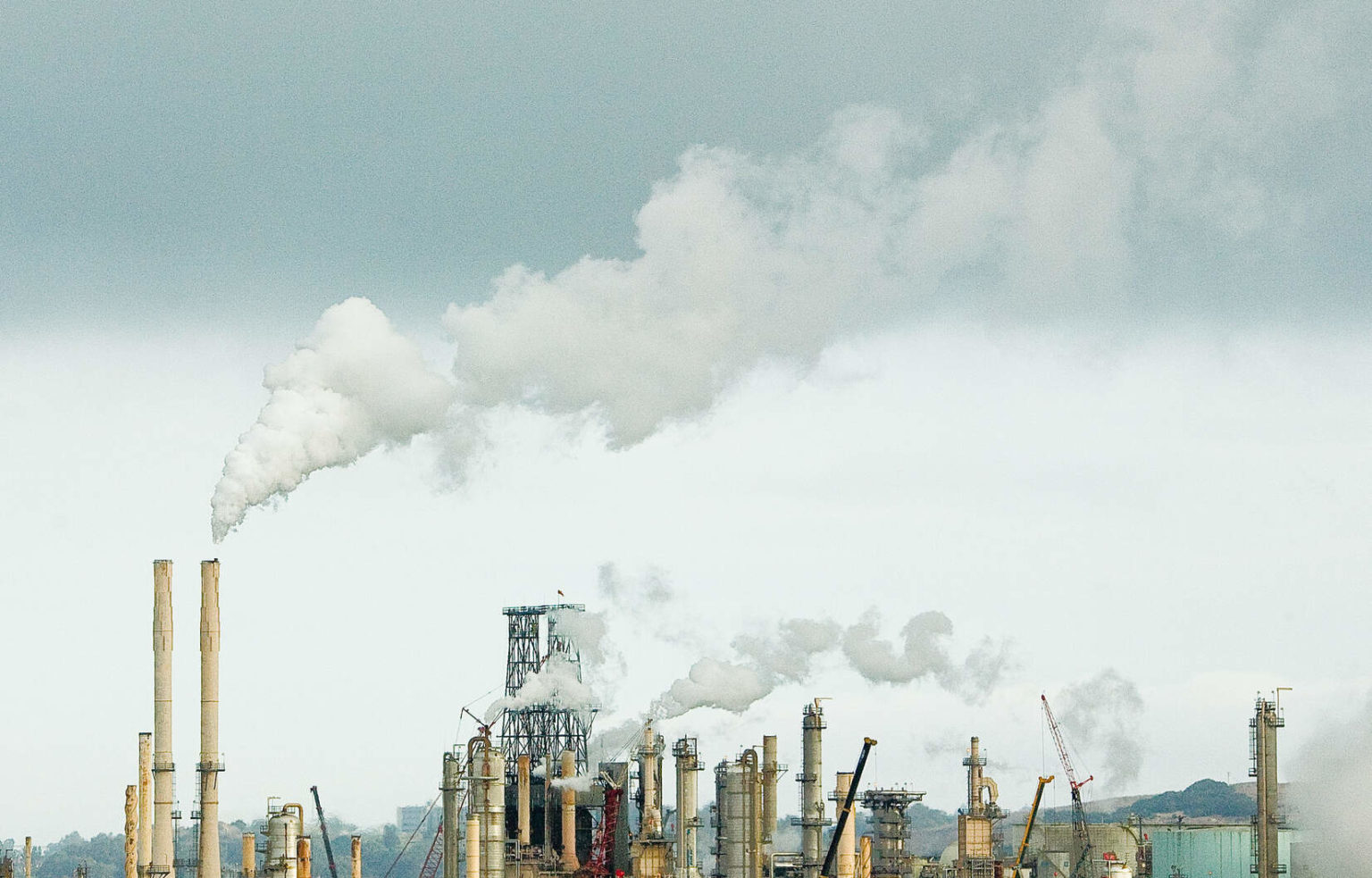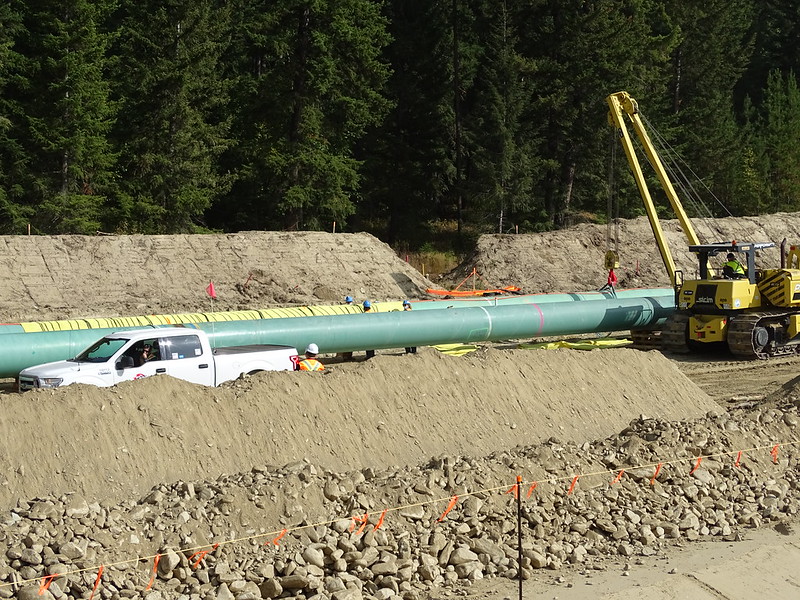The American Petroleum Institute (API), the leading oil and gas industry trade group, publicly pushed misleading information on climate change as early as 1980 – much earlier than previously thought – according to newly discovered archival documents.
API “was promulgating false and misleading information about climate change in 1980, nearly a decade earlier than previously known,” wrote Benjamin Franta, a JD/PhD candidate at Stanford University’s Law School and Department of History, in a new peer-reviewed paper published this month in Environmental Politics.
An organized campaign of climate disinformation is generally thought to have begun around 1989 with the formation of the Global Climate Coalition, an industry front group aimed at protecting fossil fuel interests, before it coalesced into a more active campaign of climate denial in the 1990s, which included attacking climate scientists, muddying the waters on climate science, and promoting climate deniers. API was one of the coalition’s leading members, along with Exxon (later ExxonMobil).
But Franta points to a policy booklet published by API in 1980 as evidence that the lobby group not only knew then about the negative impact fossil fuel combustion had on the climate, but actively sought to obscure that fact to the public.
“This contradicts the idea that the industry was a good-faith player at that time, and only later turned to disinformation efforts,” Franta told DeSmog of his findings, which he stumbled across when doing archival research.
In API’s booklet, “Two Energy Futures: A National Choice for the 80s,” the industry acknowledged that carbon dioxide was a “pollutant,” but cast doubt on the role of CO2 in global warming by misrepresenting what prominent scientists said at the time.
For instance, API pointed to popular astronomer Carl Sagan who wrote about global warming in science journals and in his 1980 book “Cosmos.” “Other scientists are more sanguine about the presence of carbon dioxide in the atmosphere. Some scientists, including Dr. Carl Sagan, Cornell University astronomer, see a cooling phenomenon as counteracting the greenhouse effect,” API wrote.
But suggesting that Sagan was “sanguine” about CO2 is false. Sagan explored the albedo effect from land use change – he proposed that deforested areas increase the planet’s albedo, which meant that disturbed land would reflect more sunlight because of its lighter color, thus potentially causing a cooling effect. Ultimately, though, Sagan warned that the dangers of warming from fossil fuels was much more significant than any cooling effect from an increased albedo. Misrepresenting some of Sagan’s work on albedo, API jumped to the conclusion that warming from fossil fuels was nothing to worry about.
After dismissing the dangers of fossil fuels, API went on to promote the expansion of fossil fuel production in its booklet, citing the 1980 World Coal Study. The coal study, although published by the Massachusetts Institute of Technology (MIT), was funded by the industry and set out to promote the expansion of coal in order to produce synthetic fuels.
API pointed to the coal study to argue that expanding coal would have “no significant damage to the environment.”
The lobby group further claimed that doubling coal production would be “consistent” with the conclusions of the 1979 World Climate Conference. But, that conference – the first major international climate conference attended by top scientists from a variety of fields – recommended no such thing. Far from endorsing coal, it warned of the dangers of “man-made changes in climate.” In a keynote address, Robert White, the conference chairman, said that “the growing dependence of the world on coal may create the most serious threat to the world’s climate.”
After the publication of the MIT study in 1980, the director of the study lobbied President Jimmy Carter’s administration. That same year, the Carter administration adopted a goal of doubling coal production by 1990 – a policy goal that was also adopted by the G7 in 1980. “So, it does look like that study was very influential, in shaping the entire energy future of the world, really,” Franta told DeSmog.
API, however, wasn’t just mischaracterizing what outside experts were saying about climate change at the time – it also publicly contradicted its own knowledge on the issue. According to Franta’s paper, the industry trade group’s own internal task-force knew at the time that production trends for fossil fuels put the world on track for several degrees of warming, which could potentially be catastrophic.
Six months before API published its “Two Energy Futures” booklet, Stanford engineer John Laurmann told API’s climate change task force that 2.5-degrees Celsius of warming could “bring world economic growth to a halt,” and that 5-degrees would have “globally catastrophic effects.” Avoiding such outcomes would require prompt action, Laurmann said. Despite this information, API made no mention of this in the booklet, and instead argued that a massive expansion of coal production would not harm the environment.
The American Petroleum Institute did not respond to a request for comment.
Franta’s report into what API knew about the connection between fossil fuels and climate change – and when it knew it – adds to a growing understanding about the industry’s decades-long effort to discredit the science on climate change.
In 2015, InsideClimate News revealed that ExxonMobil knew about climate change in the late 1970s – decades earlier than previously thought, and yet, starting in 1989, it went on to actively mislead the public about that fact for more than a decade. InsideClimate News also showed that API’s task force was aware of climate change and discussed various responses during the task force’s existence between 1979 and 1983.
Over the past five years, additional reporting by news outlets, including DeSmog, has added more detail to this history. But until now, it was generally thought that the public disinformation campaign began around 1989. The newly uncovered API booklet moves this history back nearly 10 years.
The booklet shows “the earliest public disinformation about climate change from the petroleum industry that we know of now,” said Franta.
“Big Oil now has another decade of lost time to answer for – and arguably to pay for,” climate science historian Geoffrey Supran, a research associate at Harvard University, wrote in a statement to DeSmog. He added that this new paper shows that “despite all we already know about fossil fuel interests’ history of misleading Americans about climate change, we’re still just scratching the surface. There are more documents out there – more skeletons in the closet, waiting to be found.”
Main image: Rodeo San Francisco Refinery. Credit: Thomas Hawk, CC BY–NC 2.0.
Subscribe to our newsletter
Stay up to date with DeSmog news and alerts







